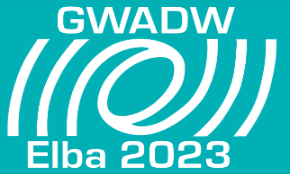Speaker
Description
The DECi-hertz Interferometer Gravitational-wave Observatory (DECIGO) is a gravitational wave antenna, which is designed to have the optimum sensitivity in the low-frequency band for detection of primordial gravitational waves. Detections of primordial gravitational waves are expected to reveal various unsolved problems, such as proof of cosmic inflation. However, the original design of DECIGO cannot achieve the sensitivity that greatly exceeds the upper limit of the energy density of primordial gravitational waves shown by the recent Planck observations. Thus, we considered reducing quantum noise that limits the sensitivity to improve its detectability.
Our method, which uses two additional short sub-cavities, optical-spring, and homodyne detection, called optical-spring quantum locking, is effective in reducing quantum noise. In this method, the subcavities signals are used to control the mirrors of the main cavity, and choosing the appropriate detection axis reduces quantum noise. We investigate the use of homodyne detection and optical spring in the main cavity of the interferometer as a next step to improve sensitivity. In this presentation, we will present current results from simulations, touching on the principles of these techniques and the problems associated with their use.

